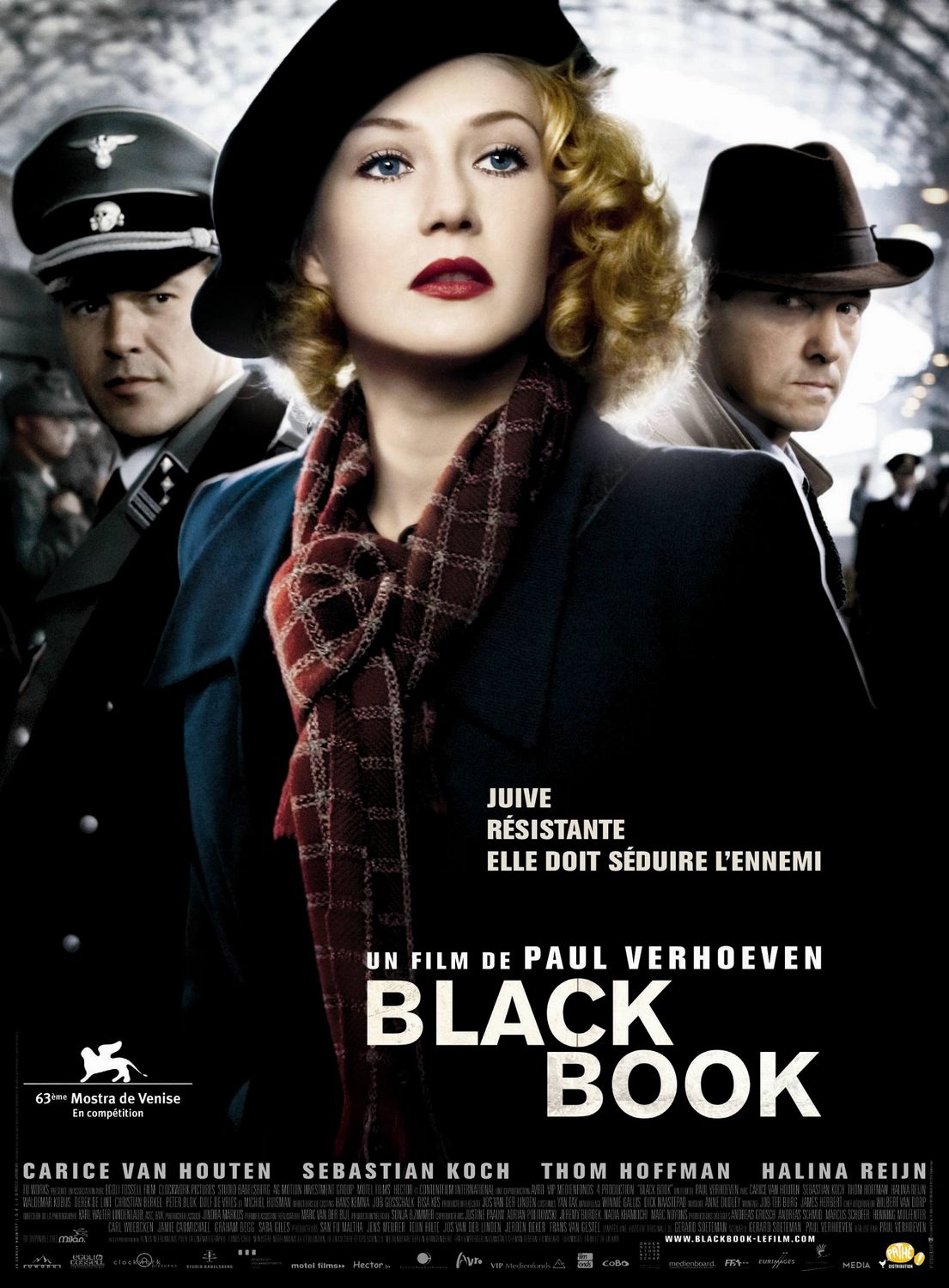
Black Book is
a Dutch historical drama which premiered in 2006. The topic is the German
occupation of the Netherlands during World War Two and the Dutch resistance
movement which fought against the German forces.
Here is some
basic information about this drama:
** Original
Dutch title: Zwartboek
** Director:
Paul Verhoeven
** Writers: Paul
Verhoeven and Gerard Soeteman
** Languages
spoken: mostly Dutch and German; sometimes English or Hebrew
** Run time: 145
minutes
The cast
includes the following:
** Carice van
Houten as Rachel Stein (aka Ellis de Vries) – Dutch resistance
** Derek de Lint as Gerben Kuipers – Dutch resistance
** Thom Hoffman as Hans Akkermans – a Dutch doctor
** Dolf de Vries as Wim Smaal – a Dutch lawyer
** Waldemar Kobus as Günther Franken – a German officer
(lieutenant)
** Sebastian
Koch as Ludwig Müntze – a German officer (captain)
** Christian
Berkel as Käutner – a German officer (lieutenant general) (no first name)
** Halina Reijn as
Ronnie – a Dutch secretary (no last name)
This drama is
not based on a true story. It is inspired by several true events and characters.
What does this mean? I assume this means the story is not a fantasy; it is
supposed to be realistic.
I think most of
what we see in this drama is realistic, although there are some scenes where
the desire for historical accuracy has been sacrificed in favour of the desire
for dramatic and spectacular effects; this happens in particular towards the
end of the drama.
I do not wish to
spoil the viewing for anyone. Therefore I am not going to say much about the
plot which runs from 1944 to 1945. If you wish to know what happens in this
movie, you will have to watch it.
What about the
title? Why is it called the Black Book? I am not going to tell you. The answer
to the question is given towards the end of the movie. Watch the movie all the
way to the end and you will find the answer.
What do
reviewers say about this historical drama? Here are the results of three review
aggregators:
71 per cent =
Meta
77 per cent =
IMDb
87 per cent =
Rotten Tomatoes (the general audience)
75 per cent = Rotten
Tomatoes (the professional critics)
As you can see,
the ratings are good but not great. The average rating is around 80 per cent,
which corresponds to four stars on Amazon.
If you ask me,
this level is very appropriate. To prove my point, I will mention one detail
which I regard as positive and one detail which I regard as negative:
THE POSITIVE
Several
languages are spoken in this drama. The Dutch speak Dutch among each other, as
they should, while the Germans speak German among each other, as they should.
When a Dutch person and a German person must communicate with each other, they
will usually speak German.
This is
realistic. This gives the drama a high degree of historical authenticity.
THE NEGATIVE
In the drama,
the members of the Dutch resistance group has an office where they all meet
quite often. In this office they seem to have all their secret documents and all
their weapons. This is not realistic.
An experienced
resistance group would never have all their secrets and all their members in
one location. This was far too dangerous. If the Germans are tipped off about this
location, they will be able to catch the whole group in one swift operation.
A real
resistance group would never operate like this. They would use different hiding
places and they would not meet each other all the time at the same location.
Having many
members of a resistance group meeting at the same location again and again is a
clear violation of historical accuracy.
CONCLUSION
This drama is
good, but not great. Therefore I think it deserves a rating of four stars (80
per cent).
PS # 1. The
drama opens and closes with a brief moment which is set in Israel in 1956. This
means the main story about the German occupation of the Netherlands and the
Dutch resistance movement is sandwiched between an introduction and an epilogue
which is set eleven years after the end of World War Two. Why?
I am not sure
why this is done. I do not regard this as a good idea or a bad idea. I regard
it as irrelevant. I do not think it serves a great purpose. I think the main story
about what happens in the Netherlands 1944-1945 is good enough to stand on its
own. It does not need to be framed by two brief moments which are set in
another country more than ten years after the end of the war.
PS # 2. The
history of the Netherlands during and shortly after World War Two is
the subject of several historical dramas. Here are some examples:
** Riphagen
(2016)
** A Real
Vermeer (2016)
** The
Resistance Banker (2018)
*****

A Dutch poster for the movie
*****
No comments:
Post a Comment